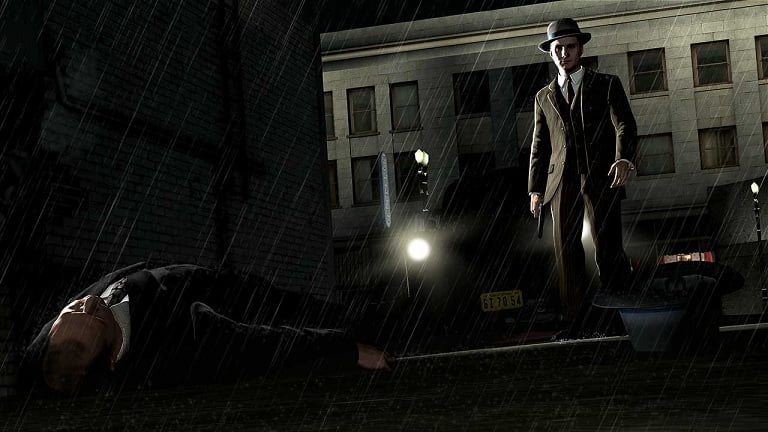It’s pretty common to spend as much time looking back as you do looking forward, especially in entertainment, I’m sure many of you have some books you have reread a number of times or movies you watch over and over. The same is true of video games, we go back to re-experience them for all kinds of reasons, be it for nostalgias sake, reminding our selves of experiences we may have forgotten or simply to have a breath of fresh air from all those ‘terrible modern games’.
Going back to something can mean a number of different things depending on what type of game you’re talking about. It could be because it makes you happy, playing Super Mario World again because it was, and still is, a great game. There is the ‘reminding yourself’ play-though, when you go back to a game when ever you’ve forgotten enough about it to get a new(ish) experience out of it again. Then there is the relapse, in cases like this I’m talking about your MMOs, going back to games like World of Warcraft (or in my case The Old Republic) after finally managing to wrench yourself away from them.

As gaming has broadened, we’ve seen a more diverse array of ways to game out in the world. One thing that has remained a focus for developers amongst all of these genres is a game’s staying power, the ability to grab us and keep us playing for more than a single afternoon. Games have never been cheap even during the days of the 8-bit era, and as a result one of the biggest points of critique has become what we’re getting for our money. It’s sad that many games are being panned now for a short length, regardless of their quality in nearly every other area. To some people it’s an important attribute, especially if they only buy one game a year for example.
This is why developers will tackle this aspect of game design and are always looking for more ways to provide their customers with more gaming bang for their proverbial buck. In the early days, it seemed the popular choice was to make games that were really difficult or broken to the point they were unbeatable, this way, players would continue to beat their heads over the game in an attempt to finally finish it, whether it was possible for them to do so or not. There are some games from back in the day I could never beat, but it kept me going back to them because maybe, one day, I’d finally get to see that ending. For example, I have never beaten Golden Axe on my old Mega Drive, and even when going back to it recently, I still found myself struggling to make significant progress. The lack of a password, coupled with permanent death made what would now be a frustrating couple of days something you would spend years on. Only if you were as terrible at games as a kid as I was of course.
Today, games are getting more creative in the ways they keep their claws in. Open world games are a hugely popular example, giving players a huge open worlds to play in, with a long checklist of side missions and jobs to do outside of the main game. Sandbox world design is showing itself in a significant number of the year’s biggest titles, GTA, Assassin’s Creed, Watch_Dogs (which was supposed to be out this year), the Arkham series, they all prolong play not only by travel times around the world, but by their wealth of additional optional content. The things is, while we will spend a lot longer playing these games as a result, it isn’t the reason we come back to them. I would return to Arkham Asylum and Assassin’s Creed II for the same reasons I watch Jurassic Park, Back to the Future or Ghostbusters every time I see them on TV, for their stories and their characters.

Games are far more cinematic now than they have ever been before, and there is a lot of merit in returning to them to experience their story again than at any point in the history. It’s for this exact reason I will constantly return to the likes of Mass Effect, Phoenix Wright and L.A. Noire. In the case of the first two, they’re filled with characters I enjoy and want to see them again, like revisiting old friends. They had stories I enjoyed and were worth experiencing more than once. In the the case of the second two, there is a unique aspect of problem/mystery solving that is a harder style of gameplay to come across compared to your FPS and racing games. There is a particular gaming itch that they scratch very well, and I gain a lot of enjoyment from going back to them and solving those problems again once they’ve faded from my memory.
While there are only so many games I’ll go back to, and a huge list that’ll just fall into the grey obscurity of the past. Some aspects of modern game design seems far less interested in having games that you can come back to, rather they want you to play their game for as long a time as possible after its release, but then just drop it when a new shiner version comes out to replace it. There are a lot of annual releases that the average Joe on the street wouldn’t be able to pick apart if asked, your sport games (Madden and FIFA), your shooters (Call of Duty and Battlefield) and even titles like Assassin’s Creed are coming out so often that once the newer one comes out, why bother going back to the older one? Thus now, rather than standing the test of time, games only need last a year before they can be cast aside.

I used Assassin’s Creed as an example earlier as a game I would return to, but with the aggressive pace at which more and more of these titles are coming out, am I really likely to return to Assassin’s Creed 6.2 when AC9 is right around the corner? The difference is, we have some games that are intended to be a singular experience, which contains a beginning and an end, the lastability (which I’m insisting is a word damn you spell checker) being the game is designed to be one you want to return to, with the pace at which Assassin’s Creed games come out and the similar style of all of their gameplay it’s only a matter of time before they start to blend together.
Mass Effect (I’m using it as an example again) does this incredibly well, having a single experience that as a huge number of divergences, encouraging you to pick it up again by rewarding you with a number of small changes throughout the entire thing. Other examples that comes to mind are Roguelikes, which we’re seeing more and more of in the indie sphere. Games such as Spelunky, FTL, The Binding of Issac and Rogue Legacy which are intended for an entire game to be played and finished in a single sitting, but provide additional content over a long span of time for people to return to it at their own leisure.

While there are some aspects of this seen in Call of Duty’s prestige mode and FIFA’s ultimate teams encouraging players to keep at it and build something over prolonged play, the necessity to restart your progress every year with the new release is somewhat off-putting. Once you get bored of the current Call of Duty, you’re more likely to wait for the next release than come back to the previous one.
In the end, I think making a game you can return to comes with the territory. Some games are made in a way that returning to them is a treat, something you can rediscover or come back to as an annual event, burning the game into your memory and allowing it to stand the test of time. Other are designed to have a limited lifespan, which expires just in time for you to give the developers another £40 to £50 to have a slightly altered and updated version of the experience all over again. I’m not holding that against these annual titles though, at the end of the day they’re companies making a profit, and making one hell of a profit at that, and with so many people happy with the current trend it looks like they’ll continue to do so for a long time to come. But think about it like this, how many people still talk about Knights of the Old Republic here on the internet? Now think about how often you see people fondly looking back on FIFA 2003, you remember that one don’t you, it was the one with Edgar Davids on the cover…






